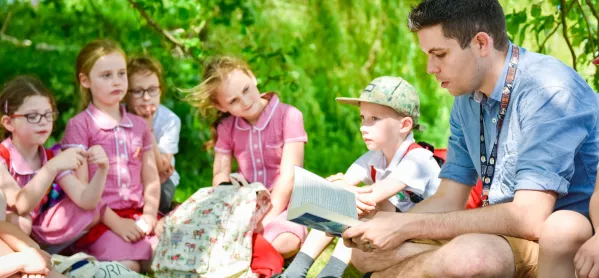- Home
- ‘All students must enjoy the social and cultural benefits of learning outside the classroom’
‘All students must enjoy the social and cultural benefits of learning outside the classroom’

For many of us, the most intense memories of school days are those experiences that took place outside the classroom. As an infant, I was taken to the local museum and allowed to play on the potter’s wheel used by Josiah Wedgwood; on a junior school trip, we defended the Wrekin against the might of the Roman army; at secondary school, were taken to see the BBC Northern Symphony Orchestra rehearse and to Stratford to watch David Warner as Hamlet and Nicol Williamson and Helen Mirren in Macbeth. A trip to the local university allowed us to use infrared spectroscopy to measure the temperature of a flame.
The narrowing of the curriculum resulting from various “reforms”, such as the introduction of the English Baccalaureate, which devalues arts and culture, and the demise of the AS level, which encouraged breadth in the sixth form, have combined with an increasingly exam-based assessment and accountability regime to discourage schools from organising trips and visits. For students from disadvantaged backgrounds (a growing rather than decreasing number), this is a tragedy. One of the vital opportunities for them to gain the “cultural capital” so important for their life chances is in danger of disappearing.
We should be immensely grateful to those institutions that view engaging and working with young people and their schools as a vital part of their work. This is not simply the self-interest of ensuring that future generations will continue to attend plays and concerts, visit museums, read books or pursue a particular career, but a passion to ensure that students, regardless of their social background, have the opportunity to be involved in life-enhancing experiences and a recognition of the contribution young people can make to their activities.
There are many examples of such partnerships. Two of which I have had the pleasure of seeing at first hand are the collaborative work of the English Symphony Orchestra and the long-standing and immense commitment to education of the Hay Festival.
‘Incalculable’ inspiration
The English Symphony Orchestra, under the dynamic leadership of their American conductor, Kenneth Woods, are now one of the most critically acclaimed in the country, with an international reputation for their innovative recordings of neglected or contemporary music. Not only are students encouraged to attend rehearsals and concerts but also two or three of the most gifted are given an opportunity to sit side by side in a professional performance and play with some of the country’s leading musicians. The encouragement and inspiration this gives to aspiring players is incalculable.
Peter Florence, the founder of the Hay Festival, has a passion for education, which has ensured that every aspect of Hay has an educational dimension. Youngsters are not only given free entry to Hay talks but also pupils and teachers have the chance to meet writers, performers and scientists during the specifically arranged school days immediately before the main festival.
Sixth-form students who attend the main festival talks or smaller seminars are able to engage with leading experts and discuss issues on a one-to-one basis. One of the most moving outcomes has been the realisation by students that they can aspire to emulate the speakers. I have been proud to witness an eminent professor say to one of my students, “That’s a fascinating question, I had not thought about it that way.” Hay speakers give their time freely and are disarmingly modest. What could be more encouraging to a student than for a world expert to say, “Yes, I found that really hard to understand at first but if you approach it like this...”
Online talks by Hay Festival speakers, the Hay Levels, give a flavour of what such events are like and have been viewed by millions worldwide, but to attend the real thing is an incomparable experience.
Despite the drastic level of cuts in funding to support such visits and the huge increase in the workload of staff, many teachers still work their way through the added bureaucracy of the now mandatory risk-assessment regime to organise trips for their pupils which open them to new experiences and allow them to make new connections. Out-of-classroom activities can illustrate and augment the facts and skills necessary to perform well in examinations, but beyond this their impact is wide and long-lasting. Students on such visits develop a range of social skills and are allowed to act more independently.
They are able to appreciate the wider economic, social and cultural significance of what they are studying, view at first-hand great works of art or wonders of nature or gain inspiration from seeing or even meeting outstanding practitioners in almost any discipline. Just as importantly, educational trips and visits can be hugely enjoyable for teachers and students, and we should strive to ensure they continue.
Jonathan Godfrey is former principal of Hereford Sixth Form College, and is on the Hay Festival board of directors
Schools can live-stream Hay Festival 2018 sessions for free on Thursday 24 (KS2) and Friday 25 May (KS3+4). Sign up here.
Keep reading for just £1 per month
You've reached your limit of free articles this month. Subscribe for £1 per month for three months and get:
- Unlimited access to all Tes magazine content
- Exclusive subscriber-only stories
- Award-winning email newsletters


